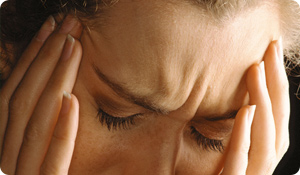
Nicotine, one of the components of tobacco, stimulates the blood vessels in the brain to constrict, contributing to headache pain. While there is currently no study data specifically addressing the link between smoking and migraines, the link between smoking and chronic headaches has been proven.
In one study of people with cluster headaches, those who reduced their tobacco use by less than one-half pack of cigarettes per day found their headaches decreased by 50 percent.
Health experts agree that the results might be significant for migraine sufferers also.
According to the National Headache Foundation, approximately 30 million people in the United States suffer from migraines. What we do know is that many people suffering from migraine headaches are also sensitive to powerful smells such as food odors, perfume, and tobacco smoke. Studies have shown that the odor produced by burning tobacco products, can trigger migraine in some susceptible individuals.
Some other migraine triggers include:
- alteration of sleep-wake cycle
- missing or delaying a meal
- medications that cause a swelling of the blood vessels
- bright lights
- sunlight
- TV and movie viewing
- certain foods
- excessive noise
- stress
Prevent the Onset of a Migraine
If you are a migraine sufferer, there are steps you can take to avoid the onset of a migraine.
- Stay clear of smoke. By avoiding situations or places where smoking occurs, migraine headaches may be avoided. Furthermore, if you are a smoker, quit.
- Keep a headache diary. Write down all of the details about your migraines. This will help you learn more about what triggers your migraines and what treatment is most effective.
- Avoid triggers. If certain foods seemed to trigger your migraines in the past, avoid those foods. If certain scents are a problem (particularly smoke), try to avoid them.
- Exercise regularly. Regular aerobic exercise reduces tension and can help prevent migraines. Walking, biking, and swimming are all good options. Be sure to warm up slowly, since sudden exertion can cause headaches.
- Rest and relax. If possible, rest in a dark, quiet room when you feel a migraine coming on. Place an ice pack wrapped in a cloth on the back of your neck and apply gentle pressure to painful areas on your scalp.
Bottom Line
If you are a migraine sufferer and a smoker, it's time to quit. Avoiding exposure to smoke can help you prevent the onset of a migraine.
Sources:
Mayo Clinic Staff. "Migraine." MayoClinic.com. Web. 26 May 2010. http://www.mayoclinic.com/health/migraine-headache/DS00120
"Migraine." MedlinePlus. Web. 26 May 2010. http://www.nlm.nih.gov/medlineplus/ency/article/000709.htm
"Smoking." National Headache Foundation. Web. 26 May 2010. http://www.headaches.org/education/Headache_Topic_Sheets/Smoking





